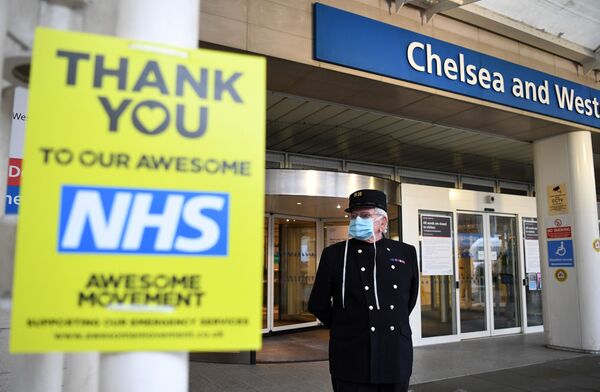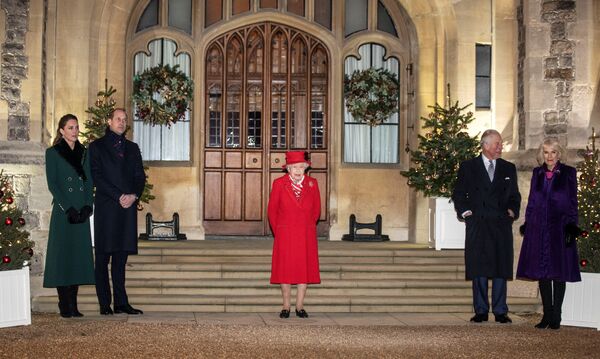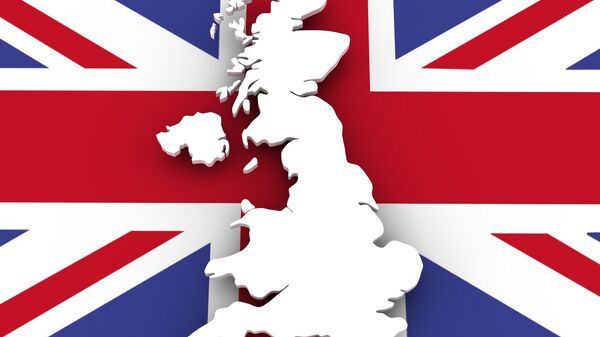The UK ceased following EU rules at 23:00 GMT, 1 January 2021, as replacement arrangements for travel, trade, immigration and security co-operation came into force following a trade agreement finally penned between the United Kingdom and the European Union after four and a half years of fraught negotiations and missed deadlines. The UK public had voted to go separate ways with the bloc in June 2016.
The Christmas Eve deal was announced after the two sides reached an agreement on final major sticking points, such as fishing rights for European vessels in UK waters and a so-called ‘level playing field’, pertaining to competition for British businesses in the EU.
Downing Street release photos of the moment the deal was finally done between Boris Johnson and Ursula von der Leyen. A moment in history, however you feel about it. pic.twitter.com/LsLlUkNlQ1
— Paul Brand (@PaulBrandITV) December 24, 2020
Hailed by the British government on a victorious note, the ‘divorce settlement’ with the EU was slammed by its critics.
Scottish First Minister Nicola Sturgeon, whose ambition is to take an independent Scotland back into the EU, tweeted that her country would be back soon, and called on Europe to ‘keep the light on’.
Scotland will be back soon, Europe. Keep the light on 🏴❤️🇪🇺❤️🏴 pic.twitter.com/qJMImoz3y0
— Nicola Sturgeon (@NicolaSturgeon) December 31, 2020
Ireland's Foreign Minister Simon Coveney said the finality of Brexit was ‘not something to celebrate’.
The ‘thin’ post-Brexit trade deal agreed with Europe was looked upon as ‘difficult’ for Wales by First Minister Mark Drakeford.
‘How Britain Ends’
An author and former BBC journalist has offered his glimpse of the fallout from the historical decision by the UK to sever its ties with the EU.
Gavin Esler, author of the book How Britain Ends – English Nationalism And The Rebirth Of Four Nations, which comes out on 4 February, writes that the country will now be facing the challenge of a ‘Britishness’ identity crisis, according to a preview published by the Daily Mail.
Pre-Brexit, once could be English, or British, Scottish or Irish and a citizen/subject of the United Kingdom (or Great Britain).
Well this is exciting - copies of the new book ‘How Britain Ends‘ have just arrived Thank you @HoZ_Books pic.twitter.com/PmwF5GRdrG
— Gavin Esler (@gavinesler) January 13, 2021
Esler now contends that it will be extremely difficult to wield constitutional and federal arrangements to prevent the disintegration of the British state.
‘United in Name Only’
According to the author, most Scots are highly critical of events at Westminster since 2016, notably Brexit and what they see as the incompetence of Boris Johnson and his Government.
In December 2019 Scotland overwhelmingly failed to vote for the Tory party, which formed the British Government, while registering an even more impressive landslide for the Scottish National Party.
The First Minister of Scotland, Nicola Sturgeon, has made it clear that if Scots wanted to leave any union, it was the one known as the United Kingdom, he writes.
“Whether you are a British unionist or one of the several versions of Scottish, English, Welsh or Irish nationalists, the truth is that the United Kingdom is now united in name only,” underscores the former host of BBC flagship political analysis programme Newsnight.
He highlights the choice people are now faced with: either to come together to make profound changes to ‘the way we are governed’, or to accept the fact that UK is a ‘failed state’ and agree to go their separate ways.
The author opines that Britain may be ‘coming to its end’, adding:
“It is not alarm bells I hear. It’s a death knell”.

Esler deplores the way that Prime Minister Boris Johnson failed to avail himself of the coronavirus pandemic- generated opportunity to advance his ‘levelling-up agenda’.
“There was co-ordination between London, Edinburgh, Cardiff and Belfast, and talk of forming a government of national unity or an advisory group of former prime ministers. Rapidly, the Prime Minister of the United Kingdom of Great Britain and Northern Ireland shrank to becoming the Prime Minister of England only – and at times only parts of England,” he says.
While the inherent strength of the union of the UK is rooted in how it enabled ‘considerable diversity’ within its four nations, the weakness, points out the ex-BBC host, lies in how disagreements can deepen the chasms unless there is a clear mechanism to resolve them.
‘Constitutional Crisis’
“We are sliding at a glacial pace into a constitutional crisis,” says the author of the book exploring the future post-Brexit landscape of the UK.
While many have ‘fetishized’ the glory of the UK’s ‘unwritten’ constitution, Esler deplores the country’s uncodified constitution as a ‘jigsaw of laws, judgments, traditions and precedents’ open to different interpretations.
Another myth he debunks is that the country is as uniformly British as many imagine.
The example he cites is the National Health service (NHS) - one of the most devolved and decentralised of the institutions, that has ‘four separate chief medical officers’. In different parts of the UK, the law is different, too.
There is also no ‘British school system’, claims the author, nor a unified examination system. And even though the nations all have the same Monarch, they all engage in a very different official relationship with the HRM Queen Elizabeth II in terms of religion.

While broadcasting organisations are positioned as British national institutions, they are run very differently in Scotland, Northern Ireland and Wales, claims Esler.
“Indeed, the more you examine our ‘national’ institutions, the more separate our UK already appears to be. In fact, we have federalised the UK by stealth,” insists the author.
Looking ahead at possible options to avert a ‘devolutionary impulse’, the author suggests taking a closer look at the ‘Home Rule for all’ model, championed by Joseph Chamberlain in the late 19th Century.
However, reinvigorating this idea would require devolving more powers to Scotland, Wales and Northern Ireland, besides reworking the relationship between the regions of England and Westminster, he warns.
‘Two Likely Outcomes’
Two scenarios are suggested for the future by the writer. One is that the ‘simmering rage of English nationalism’ he contends is manifest today will become the first ‘whisper of how Britain ends’.
The second possibility is that growing discontent will become a catalyst for the reinvention of the UK as some yet-unclear but nevertheless newly Re-United Kingdom.
Unless this effort is made, the separation of England from Scotland, and possibly Northern Ireland, would lead to a full-blown political crisis.
“The end of Britain would be much more complicated, messy, costly and bitter even than Brexit,” concludes Gavin Esler.


